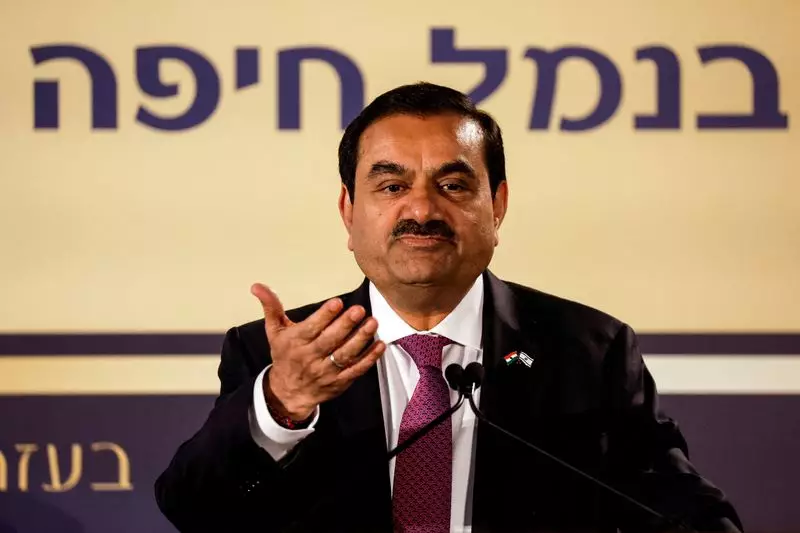The landscape of international business is often fraught with intrigue, but the recent indictment of Gautam Adani, the billionaire chair of Adani Group, in a high-profile bribery case has captured significant attention. U.S. prosecutors have laid out a case accusing Adani, along with several associates, of orchestrating a multibillion-dollar scheme to corruptly secure contracts within India’s solar energy sector. The case revolves around allegations that Adani and his team agreed to pay roughly $265 million in bribes to Indian government officials, ostensibly to obtain contracts that could yield profits up to $2 billion over two decades.
According to the indictment, Gautam Adani and Co. used codename references when discussing their activities, indicating a level of premeditation and secrecy that is particularly alarming for legal authorities. With terms like “Numero uno” and “the big man” being attributed to Adani, one can glean that there was an acute awareness of the potential legal ramifications should these alleged activities come to light. His nephew, Sagar Adani, has also been named in the documents, with reports indicating that he utilized his mobile device to closely monitor the details surrounding the bribes.
The implications extend beyond mere bribery; the Adani group allegedly concealed these corrupt actions while soliciting loans and raising over $3 billion through various financial instruments. This raises critical questions about corporate governance, ethical standards, and the responsibilities of financial institutions and investors who may have been misled during the funding process.
At the heart of these allegations lies a violation of the Foreign Corrupt Practices Act (FCPA), a stringent U.S. law designed to outlaw bribery of foreign officials in order to gain business advantages. As one of the biggest names embroiled in such serious allegations, Adani’s case will inevitably draw comparisons to past corporate scandals that have shaken the foundations of international business ethics. The implications for multinational corporations operating in India and similar markets could be profound, potentially leading to increased scrutiny on their dealings and governance practices.
The indictment has not only led to legal disputes but has also spurred conversations about the repercussions for Adani Group’s business ventures. As the charges were revealed, the company’s response was conspicuously muted, with requests for comment being largely unmet. For Gautam Adani, who boasts a net worth that places him among the world’s wealthiest individuals, the stakes could not be higher, especially considering that his previous claims of investing billions into U.S. energy security could come under scrutiny.
Furthermore, the arrest warrants issued against Gautam Adani and Sagar Adani signal a significant escalation in the legal battle ahead. The legal complexities will likely involve collaboration with international law enforcement agencies, raising the profile of not just this case but also the regulatory frameworks governing global business practices.
Adani’s predicament also carries a broader narrative regarding the image of Indian businesses on the global stage. For a nation that aims to project itself as a lucrative destination for foreign investment, high-profile allegations such as these could dampen investor confidence. Even as Adani has pledged new investments aiming to create jobs and bolster infrastructure in the U.S., the integrity of his conglomerate faces critical scrutiny that could daunt partnerships and collaborative ventures moving forward.
Additionally, this case comes on the heels of previous accusations by Hindenburg Research that further questioned the credibility of Adani Group’s financial practices. The subsequent fallout has prompted industry observers to closely examine whether other prominent Indian industrialists could potentially be entangled in similar allegations.
As legal proceedings progress, it will be crucial for both Adani and the various entities involved to navigate this critical juncture with a keen understanding of the ramifications that could digress well beyond the courtrooms. The financial, ethical, and reputational stakes have reached unprecedented heights, positioning this case as a pivotal moment in the realm of corporate governance not just for India, but for businesses globally. The unfolding events will undoubtedly serve as a cautionary tale regarding the importance of transparency and integrity in business dealings, echoing through the corridors of corporate power for years to come.

